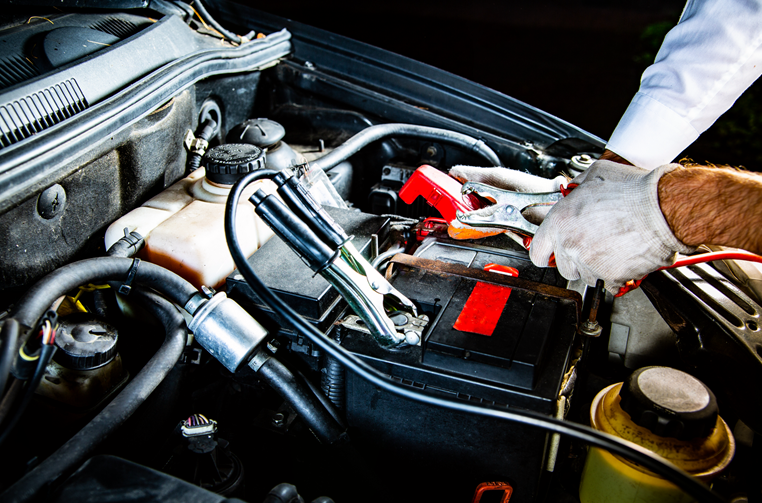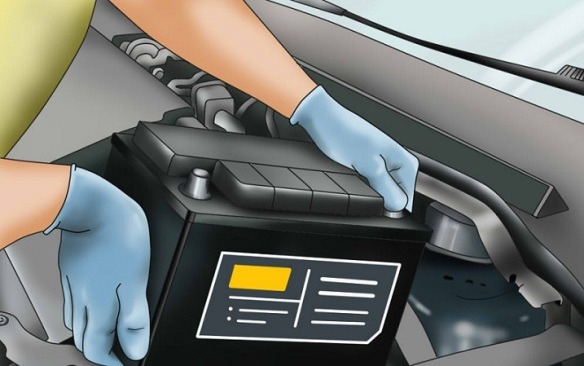China Lifespan of LiFePO4 Batteries
Lithium iron phosphate (LiFePO4) batteries have become increasingly popular in recent years due to their high energy density, low self-discharge rate, and long cycle life. These batteries are commonly used in various applications such as electric vehicles, renewable energy storage, and portable electronics.
One of the key advantages of LiFePO4 batteries is their long lifespan. Unlike other types of batteries, such as lead-acid or nickel-cadmium batteries, LiFePO4 batteries can endure thousands of charge and discharge cycles without significant loss of capacity. In fact, LiFePO4 batteries can last up to ten times longer than lead-acid batteries and four times longer than nickel-cadmium batteries.
The lifespan of LiFePO4 batteries is largely determined by several factors such as temperature, charge rate, depth of discharge, and storage conditions. High temperatures can accelerate the aging process of the battery and reduce its lifespan. Therefore, it is important to keep the battery at a moderate temperature range, typically between 15°C and 25°C.
Charge rate is another important factor that affects the lifespan of LiFePO4 batteries. Charging the battery at a high rate can cause it to heat up and reduce its lifespan. Therefore, it is recommended to charge the battery at a slow and steady rate, typically between 0.5C and 1C.
Depth of discharge is also a critical factor that can affect the lifespan of LiFePO4 batteries. Deep discharges can cause the battery to degrade faster and reduce its overall lifespan. Therefore, it is recommended to keep the battery at a shallow depth of discharge, typically between 20% and 80%.

Storage conditions are also important for the lifespan of LiFePO4 batteries. Storing the battery at a high temperature or in a fully charged state for an extended period can reduce its lifespan. Therefore, it is recommended to store the battery at a moderate temperature range and at a state of charge between 40% and 60%.
In addition to these factors, the quality of the battery and its manufacturing process can also affect its lifespan. High-quality LiFePO4 batteries that are manufactured using advanced production processes and strict quality control measures can last longer than low-quality batteries.
In conclusion, the lifespan of LiFePO4 batteries can vary depending on several factors such as temperature, charge rate, depth of discharge, and storage conditions. However, with proper care and maintenance, LiFePO4 batteries can last up to ten years or more, making them a reliable and cost-effective solution for various applications.
-
 Lithium Iron Phosphate (LiFePO4) is a type of lithium-ion battery that has been in use since the year 1996. It has rapidly gained popularity in the recent years due to its exceptional features and benefits that sets it apart from other types of lithium-ion batteries available on the market. In this report, we will take an in-depth look at the...اقرأ أكثر
Lithium Iron Phosphate (LiFePO4) is a type of lithium-ion battery that has been in use since the year 1996. It has rapidly gained popularity in the recent years due to its exceptional features and benefits that sets it apart from other types of lithium-ion batteries available on the market. In this report, we will take an in-depth look at the...اقرأ أكثر -
 As technology advances and our dependence on electronics grows, the need for reliable and efficient power sources becomes increasingly important. One such power source is the 12V LiFePO4 battery, which offers a range of benefits over traditional lead-acid batteries. Firstly, LiFePO4 batteries have a significantly longer lifespan than lead-acid batteries. While lead-acid batteries may last for around 500 charge...اقرأ أكثر
As technology advances and our dependence on electronics grows, the need for reliable and efficient power sources becomes increasingly important. One such power source is the 12V LiFePO4 battery, which offers a range of benefits over traditional lead-acid batteries. Firstly, LiFePO4 batteries have a significantly longer lifespan than lead-acid batteries. While lead-acid batteries may last for around 500 charge...اقرأ أكثر -
 In recent years, there has been a significant advancement in the field of robotics, with intelligent mobile robots becoming increasingly prevalent in various industries. One crucial factor that has contributed to their development is the use of advanced lithium batteries. These batteries have revolutionized the way these robots operate, providing them with longer-lasting power and enhanced efficiency. Lithium batteries...اقرأ أكثر
In recent years, there has been a significant advancement in the field of robotics, with intelligent mobile robots becoming increasingly prevalent in various industries. One crucial factor that has contributed to their development is the use of advanced lithium batteries. These batteries have revolutionized the way these robots operate, providing them with longer-lasting power and enhanced efficiency. Lithium batteries...اقرأ أكثر -
 With the increasing demand for clean and sustainable energy solutions, lithium batteries have gained significant popularity in recent years. Among the various types of lithium batteries available in the market, the 100Ah Lithium Iron Phosphate (LiFePO4) battery stands out for its long-lasting power and numerous benefits. In this article, we will delve into the features and advantages of the 100Ah...اقرأ أكثر
With the increasing demand for clean and sustainable energy solutions, lithium batteries have gained significant popularity in recent years. Among the various types of lithium batteries available in the market, the 100Ah Lithium Iron Phosphate (LiFePO4) battery stands out for its long-lasting power and numerous benefits. In this article, we will delve into the features and advantages of the 100Ah...اقرأ أكثر -
 بطاريات السيارات هي شريان الحياة لسيارتك ، وبدونها ، ستبدأ سيارتك. تعتبر حزمة البطارية مسؤولة عن توفير الطاقة اللازمة لبدء تشغيل المحرك وتشغيل الأجهزة الإلكترونية في سيارتك. تعد حزمة بطارية بدء التشغيل الموثوقة ضرورية لسير سيارتك بسلاسة. في هذا المقال سنناقش أهمية ...اقرأ أكثر
بطاريات السيارات هي شريان الحياة لسيارتك ، وبدونها ، ستبدأ سيارتك. تعتبر حزمة البطارية مسؤولة عن توفير الطاقة اللازمة لبدء تشغيل المحرك وتشغيل الأجهزة الإلكترونية في سيارتك. تعد حزمة بطارية بدء التشغيل الموثوقة ضرورية لسير سيارتك بسلاسة. في هذا المقال سنناقش أهمية ...اقرأ أكثر -
 مقدمة في السنوات الأخيرة، تزايد الطلب بسرعة على حلول الطاقة عالية الأداء وطويلة الأمد. ونتيجة لذلك، ظهرت بطاريات ليثيوم فوسفات الحديد (LiFePO4) 48 فولت كخيار شائع في مختلف الصناعات، بما في ذلك الطاقة المتجددة، والمركبات الكهربائية، وأنظمة الطاقة خارج الشبكة. تهدف هذه المقالة إلى استكشاف ميزات وفوائد بطاريات LiFePO4 48V، مع تسليط الضوء على...اقرأ أكثر
مقدمة في السنوات الأخيرة، تزايد الطلب بسرعة على حلول الطاقة عالية الأداء وطويلة الأمد. ونتيجة لذلك، ظهرت بطاريات ليثيوم فوسفات الحديد (LiFePO4) 48 فولت كخيار شائع في مختلف الصناعات، بما في ذلك الطاقة المتجددة، والمركبات الكهربائية، وأنظمة الطاقة خارج الشبكة. تهدف هذه المقالة إلى استكشاف ميزات وفوائد بطاريات LiFePO4 48V، مع تسليط الضوء على...اقرأ أكثر -
 Battery Type and Chemistry When selecting a marine battery for your boat, the first crucial consideration is the battery type and chemistry. The common options include flooded lead-acid, AGM (Absorbent Glass Mat), and Lithium-ion batteries. Each type has its advantages and disadvantages, such as maintenance requirements, lifespan, and weight. Understanding the differences between these battery types and choosing the one...اقرأ أكثر
Battery Type and Chemistry When selecting a marine battery for your boat, the first crucial consideration is the battery type and chemistry. The common options include flooded lead-acid, AGM (Absorbent Glass Mat), and Lithium-ion batteries. Each type has its advantages and disadvantages, such as maintenance requirements, lifespan, and weight. Understanding the differences between these battery types and choosing the one...اقرأ أكثر

